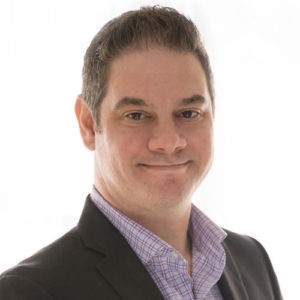
The world is also rapidly becoming more urban. In the 1800s, only about 3% of people lived in urban areas. By the 1950s, that had spiralled to around 29% and currently, over 50% of the world lives in a city. The UN predicts that by the year 2050, 68% of the population will live in urban centres.
What is more interesting now is the development of Smart Cities – cities that are made on technology and that are dependent on technology. Studies show that most cities around the world now have some smart features – some more than others.
With high population density and buildings squeezed together to maximise space, millions of people living near each other come with challenges. These are risks are exacerbated with natural disasters or other calamities. An earthquake might devastate the structure of a city and leave thousands missing and buried in the rubble. A flood may not just leave a few people stranded on rooftops but, in an urban setting, could leave millions in a perilous state.
The solution to these issues lies in the idea of Smart Cities – urban living spaces that have all the basic infrastructure designed by and built on technology. In addition, it has tech-enabled predictive, preventive, and responsive measures put in place to manage critical events.

OpenGov Asia had the opportunity to speak exclusively to David Graham, Chief Innovation Officer, City of Carlsbad.
As the Co-Chair of the San Diego Regional Smart Cities Collaborative, Co-Chair of the Harvard Technology and Entrepreneurship Centre City Innovation programme and the City of Carlsbad Chief Innovation Officer, David is focused on co-creating the cities of the future and training the leaders who will make it possible.
With vast political, operations and management experience, David has been passionate about embedding innovation at all levels. He has worked with local governments for over twenty years in both the public and private sectors that encompass several multi-agency and city-academic partnerships.
Having provided smart solutions for large cities, David currently works with medium-sized communities – like Carlsbad. In terms of scope, it is on par with most of the country’s states. He strongly believes that if innovative change can be incorporated in a city like Carlsbad, it could be a shining example for the rest of the country. Passing information, technology, best practices have a significant impact on the development of other smart cities across the country.
To give some perspective, Carlsbad was named “Digital Capital” by a multinational technology company in its annual E-City awards programme. Analysing the online strength of the small-business communities of all fifty states in the US, the tech company honoured one city from each of the fifty states as the new “digital capital.” These cities’ businesses are using the web to find new customers, connect with existing customers and fuel their local economies.
For cities with a mission to innovate, David conceded that the ongoing COVID-19 pandemic further highlighted the work that needs to be done immediately. Government services had to move to the digital space to conduct their programmes.
Data integration became more vital than ever before – building more communication and ICT infrastructure for operations to be able to assess the public’s immediate needs in terms of services and how to deliver those services in a contactless manner.
The pandemic also heightened the need for innovation and in fact, it should be a strong motivator for action – “anyone in the government can and should be an innovator”. David and his team are keen to instil the drive for innovation. They want to provide incentive and opportunity for the government to approach their job with a continuous improvement perspective and where they feel empowered for being part of the change.
The Carlsbad council with David’s help, have already identified deficiencies in their technology and communication platforms and they are committed to continuously improving them. First on their to-do list was to utilise digital collaboration tools better and more comprehensively within the council itself. With time and availability being rare commodities, David and his team conducted meetings virtually – well before the pandemic. So, when COVID-19 struck, they knew that these digital tools would be even more important.
In terms of connectivity, Carlsbad is using consumer-grade broadband. Understanding the pressing need early on, prior to the pandemic, David convinced the council to collaborate with a third-party fibre connection provider. Through this, they were to build a digital information network with a 200-500 gigabyte core network ahead of the COVID-19 crisis.
David acknowledges, for the most part, everyone overcame organisational barriers at such a lightning pace due to necessity brought on by the pandemic. The world had to accelerate because there were no other options.
With a little breathing space now as infection rates drop and vaccination programmes being rolled out, organisations need to be more intentional. They should assess what they have been able to do, and from that, prepare for what is coming next and make sure they do not return to normal, as everyone is in a better place in terms of innovation after the pandemic. David said, “it would be a tragedy if we snapped back to our old reality without learning the lessons of what we have gone through.”
Interestingly, an added inhibitor is animosity. In stressful times it is easy to take offence. People and organisations must put personal differences aside because, in the era of COVID-19, everything is potentially a matter of life and death. Issues cannot be around territories or jurisdictions. This is the time to share vital information on possible solutions that serve the greater good.
The pandemic has driven radical change in operations such as remote work. Initially, much of the measures were ad hoc or designed to be temporary and David believes there is place for some adjustments. Remarkably, though, this new set up seems to be working just fine for most organisations in some way, shape or form. The trust that cities paced in their employees played a role in the success of the setup as well as the commitment of staff to continue to deliver citizen-services throughout the pandemic.
None the less, in the public sector, he notes, that there is still a lack of good project management and collaboration tools. These are vital to assess key performance indicators and allow for monitoring and feedback.
Governments must not only think about infrastructure when dealing with a critical event. They should consider ways to improve the experiences of users on these platforms by providing good services. With this as a backdrop, David listed three crucial areas that governments and organisations should focus on.
The first one is transportation, transit, and mobility. Developing a sustainable urban tech programme demands an effective transportation system, especially in the current context where citizens are wary of using mass transit.
The second one is to accelerate data integration between organisations and agencies. Data from contact tracing apps, public records, travel information as well as announcements from federal and local agencies that can help curtail the effects of the pandemic must be shared quickly and comprehensively.
In Carlsbad, the council began to share such data for public consumption when the crisis was just starting to make its presence felt. Keeping the public aware, getting them motivated and making them part of the solution was vital for Carlsbad. Instead of just telling people what they needed to do, citizens were made an intrinsic part of the response. By doing so, the city managed to have the lowest number of COVID-19 cases of any city of its size in the region.
David reiterated that sharing data with the public and across agencies should be applied in all types of endeavours, not just in disasters. This is foundational for smart cities and communities to grow.
In addition to transportation and data integration, community amenities such as parks and libraries are integral to keeping the city on as even a keel as possible. David observed a surge in library inquiries during the pandemic – not just for books and the like – but also for workforce and training purposes.
Carlsbad launched several digital communication initiatives on social media platforms, via e-mails, etc., to let people know that these services were still available for citizens during the pandemic.
With their important role, these facilities should be digitalised. In fact, physical services should be expanded to the digital space where possible. With higher uptake, this is an opportunity for the government to accelerate the digital transformation of its services.
In the end, David acknowledges that the human angle to technology is the most difficult thing to incorporate. If governments and organisations can lead and begin with the human story, explaining why technological and data solutions are necessary, they will reap huge benefits in politics, the public and the community.
















